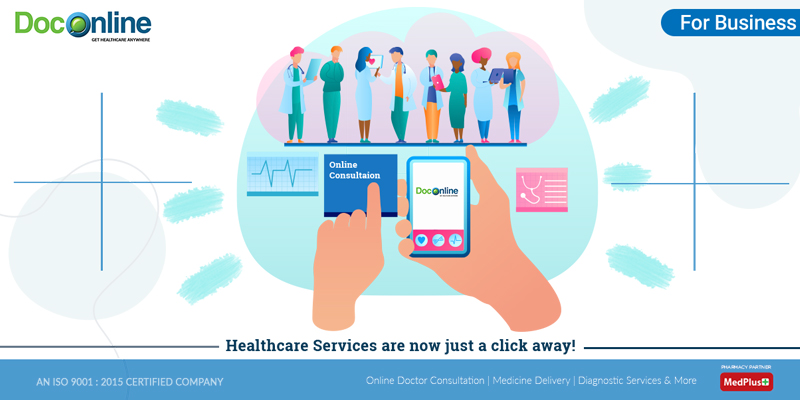The Future of Medication: Checking Out Subscription Based Healthcare Models
The Future of Medication: Checking Out Subscription Based Healthcare Models
Blog Article
Exactly How Subscription-Based Medical Care Is Reinventing the Medical Sector

The Rise of Membership Health Care
Recently, the medical care sector has actually observed a considerable shift towards subscription-based designs, showing wider consumer trends favoring benefit and predictability. This change is driven by the increasing demand for more easily accessible and individualized care options. Registration health care, often referred to as concierge medicine or straight medical care, provides clients a fixed month-to-month charge for a variety of medical services, significantly changing standard fee-for-service models.
The surge of membership health care is helped with by advancements in technology, which make it possible for structured communication between people and service providers - subscription based healthcare. Digital systems and telehealth solutions have become essential, offering clients the capability to schedule consultations, gain access to clinical records, and obtain assessments online. This technical combination not just improves patient interaction but likewise allows carriers to provide more effective treatment
In addition, the subscription model aligns with the evolving assumptions of patients who seek more control over their healthcare expenditures and experiences. While this version is gaining traction, its proliferation faces challenges such as regulative obstacles and the necessity for broader acceptance within the conventional health care environment.
Advantages for Service Providers and patients
Subscription-based health care supplies a wide range of advantages for both patients and carriers, reshaping the characteristics of clinical treatment. For patients, this design gives boosted access to health care solutions.
For medical care service providers, subscription-based models cultivate an even more lasting and enjoyable method. By protecting a constant revenue stream, suppliers can concentrate on supplying premium care without the stress of volume-based solution. This model motivates longer client examinations, promoting stronger patient-provider connections and enhancing health and wellness end results. Furthermore, it provides carriers the flexibility to introduce and integrate precautionary and alternative treatment techniques. Administrative tasks are frequently structured, reducing overhanging prices and allowing service providers to devote more time to client interaction. Overall, subscription-based health care aligns the incentives of service providers and patients, promoting a much more efficient and patient-centered medical care delivery system.
Secret Functions of the Version
Frequently, the key functions of the subscription-based medical care version emphasize its distinctive approach to delivering medical services. Central to this design is the idea of predictable, month-to-month settlements, offering patients a detailed series of solutions without the unpredictability of traditional fee-for-service structures. This design commonly consists of endless access to health care services, preventive care, and routine check-ups, guaranteeing that clients can engage with their healthcare suppliers proactively instead than reactively.
In addition, straight interaction networks, such as telemedicine and messaging platforms, are highlighted, enabling individuals to get timely guidance and assessments without needing in-person appointments. This enhances accessibility and convenience, particularly for people with flexibility restraints or those living in remote areas. The model likewise promotes stronger doctor-patient relationships, as doctor are incentivized to concentrate on lasting health and wellness outcomes instead of temporary sees.
Additionally, subscription-based health care frequently integrates technical developments, such as electronic wellness records and health surveillance apps, to provide efficient and tailored treatment. Patients benefit from worked with and constant treatment administration, which is tailored to their certain health demands. Eventually, these attributes collectively develop a patient-centered health care experience, focusing on availability, cost transparency, and preventive care.

Factors To Consider and difficulties
While the subscription-based healthcare version uses various benefits, it is not without its difficulties and considerations. One substantial difficulty is guaranteeing fair access. Registration models might inadvertently prefer those with higher socioeconomic standing, potentially broadening disparities in health care accessibility for lower-income individuals that may have a hard time with monthly charges. This elevates ethical worries about inclusivity and equity in health care distribution.
One more difficulty lies in regulative conformity. Subscription-based medical care has to navigate a complex web of policies that vary by area, consisting of concerns around patient discretion, data protection, and state licensing demands. Ensuring conformity without hampering the design's versatility and innovation can be daunting for service providers.
Furthermore, there is the risk of overutilization or underutilization of services. Clients paying a fixed charge could overuse solutions, resulting in boosted operational expenses, while others may underutilize due to be afraid of burdening the system, possibly neglecting required treatment.
Future Prospects and Innovations
The landscape of subscription-based healthcare is poised for improvement via arising innovations and progressing leads. As innovation remains to advancement, the combination of expert system and equipment go to these guys discovering provides substantial possibilities to boost analysis precision and simplify patient administration. Predictive analytics can reinvent precautionary treatment by recognizing potential health dangers prior to they materialize, thus reducing both prices and the worry on healthcare systems.
In addition, telemedicine is set to expand within subscription models, offering people raised access to health care professionals no matter of geographical restrictions. This not just promotes continuity of care however additionally encourages people to engage more proactively in their health management. In addition, blockchain technology provides potential in safeguarding person information and ensuring interoperability throughout platforms, cultivating depend on and transparency.
Collaborations between technology companies and healthcare companies Visit Your URL are most likely to yield cutting-edge options, enhancing patient experiences and results. As these potential customers materialize, subscription-based health care has the possible to redefine just how care is supplied and accessed.
Verdict
Subscription-based health care is changing the medical market by offering a much more accessible, predictable, and patient-centered strategy to medical services. Regardless of challenges such as regulative difficulties and potential variations in accessibility, the subscription design holds assurance for a more individualized and reliable medical care experience.
Subscription health care, often referred to as attendant medicine or direct main treatment, supplies clients a fixed regular monthly cost for a range of medical services, substantially modifying traditional fee-for-service models.
Furthermore, the registration version aligns with the developing assumptions of individuals that seek even more control over their medical care expenditures and experiences. For clients, this model gives boosted accessibility to medical care solutions. Overall, subscription-based healthcare aligns the incentives of providers and patients, advertising an extra reliable and patient-centered health care shipment system.
Additionally, telemedicine is you can try here set to broaden within subscription models, offering people raised accessibility to health care experts regardless of geographical constraints. - subscription based healthcare
Report this page